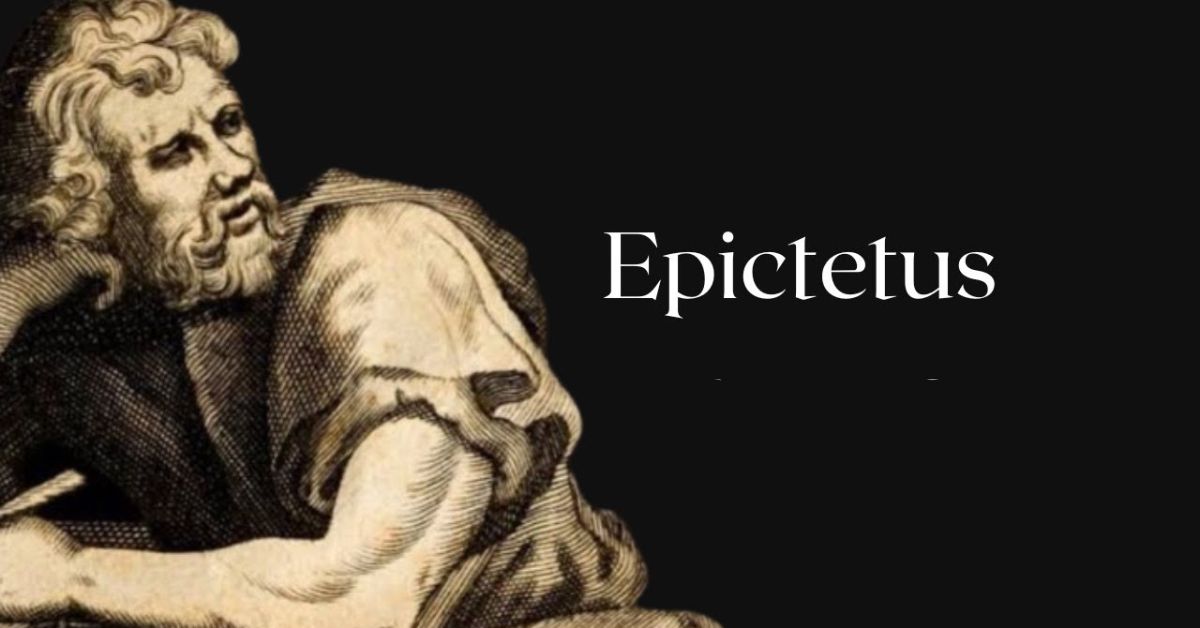
How to Read Epictetus's Books on Discipline
How to Read Epictetus's Works on Discipline
Estimated Reading Time: 10-12 minutes
Introduction
Epictetus, a prominent Stoic philosopher born around 55 AD in Phrygia (modern-day Turkey), offers profound insights into the nature of discipline and self-control. Born a slave, he later gained his freedom and established a school of philosophy in Nicopolis, where he imparted wisdom that has transcended centuries. His teachings, primarily recorded by his student Arrian in the "Discourses," emphasize the importance of internal discipline over external circumstances.
In a world increasingly defined by distractions and external pressures, Epictetus's perspective on discipline is both unique and invaluable. His philosophy teaches that true freedom comes from mastering oneself, a lesson that resonates deeply in our contemporary lives. The historical context of his work, emerging from the tumultuous Roman Empire, further amplifies the relevance of his ideas, as he navigated personal adversity and societal challenges to cultivate a philosophy of resilience and self-governance.
Why Epictetus's Perspective Matters
Epictetus's approach to discipline is distinctive for its emphasis on the dichotomy of control—a key Stoic concept that delineates between what we can control (our thoughts, intentions, and actions) and what we cannot (external events and the actions of others). This perspective not only encourages personal responsibility but also fosters a sense of peace amidst life's uncertainties.
Unlike other philosophers who may focus on theoretical constructs, Epictetus grounds his teachings in practical applications, making them accessible to anyone seeking personal growth. His insights have influenced countless thinkers, including modern psychologists and self-help authors, who recognize the timeless nature of his wisdom. The lasting impact of his ideas is evident in contemporary discussions on mental resilience, emotional intelligence, and ethical living.
Overview of Recommended Books
Discourses
The "Discourses" is a compilation of Epictetus's teachings, structured as a series of conversations and lectures. This work delves deeply into various aspects of discipline, exploring how to cultivate a virtuous life through self-control and rational thought.
Main Themes and Arguments:
- The Dichotomy of Control: Epictetus emphasizes the importance of distinguishing between what is within our control and what is not, urging readers to focus their energy on the former.
- The Role of Desire and Aversion: He discusses how our desires and aversions can lead to suffering, advocating for a disciplined approach to managing them.
- Virtue as the Highest Good: Epictetus posits that true happiness stems from living in accordance with virtue, which requires discipline in thought and action.
Historical Context and Significance: Written during a time when the Roman Empire was at its height, the "Discourses" reflect the struggles of individuals seeking meaning and purpose amidst societal chaos. Epictetus's teachings resonate with the Stoic tradition, which sought to provide practical guidance for ethical living in a tumultuous world.
Key Insights and Takeaways:
- Focus on Internal Mastery: By mastering our thoughts and reactions, we can achieve a sense of peace and stability regardless of external circumstances.
- Practice Mindfulness: Regular self-reflection and mindfulness can help us recognize and manage our desires and aversions, leading to greater self-discipline.
- Embrace Adversity: Challenges and hardships are opportunities for growth; embracing them with a disciplined mindset can lead to personal development.
Why Read This Book: The "Discourses" is essential for anyone seeking to understand the concept of discipline from a Stoic perspective. It provides practical tools for navigating life's challenges, making it invaluable for students, professionals, and anyone interested in personal growth.
Key Themes and Sections
The "Discourses" is rich with themes and sections that address discipline in various forms. Here are some key areas to explore:
- Self-Control and Rationality: Epictetus emphasizes the importance of rational thought in achieving self-discipline. He encourages readers to cultivate a mindset that prioritizes reason over emotion.
- The Nature of Freedom: True freedom, according to Epictetus, comes from internal discipline. He argues that external circumstances do not define our freedom; rather, it is our response to them that matters.
- Community and Relationships: Epictetus discusses how discipline extends to our interactions with others, advocating for ethical behavior and the importance of community in fostering personal growth.
The progression of ideas throughout the "Discourses" builds a comprehensive understanding of discipline, illustrating how it is intertwined with virtue, freedom, and personal responsibility.
Who Would Benefit from Reading These Books
The "Discourses" appeals to a wide range of readers:
- Students and Academics: Those studying philosophy or ethics will find Epictetus's insights foundational to understanding Stoicism.
- General Readers Interested in Discipline: Individuals seeking practical wisdom for personal growth and self-improvement will benefit from the actionable insights offered.
- Professionals Seeking Practical Wisdom: Business leaders and professionals can apply Epictetus's teachings to cultivate resilience and effective leadership.
- Anyone Looking for Personal Growth: Those navigating life's challenges will find comfort and guidance in Epictetus's philosophy.
Recommended Reading Order
To maximize your understanding of the "Discourses," consider the following approach:
- Begin with: The introduction and first few sections - These provide foundational concepts, including the dichotomy of control, which is essential for grasping Epictetus's philosophy.
- Focus on: Key themes such as self-control and rationality - Delve into specific chapters that explore these ideas in detail, applying them to your own life.
- Advanced study: Engage with the discussions on community and relationships - Reflect on how discipline affects your interactions and ethical considerations in daily life.
To get the most out of this foundational work, take notes, reflect on personal applications, and consider discussing the material with others to deepen your understanding.
Conclusion
Epictetus's contributions to the theme of discipline are profound and enduring. His teachings offer a roadmap for personal growth, emphasizing the importance of internal mastery and ethical living. As you explore the "Discourses," consider how these timeless ideas can be applied to your own life.
In a world rife with distractions and external pressures, the wisdom of Epictetus provides a guiding light, encouraging us to cultivate discipline and resilience. Dive into his work, and allow it to inspire your journey toward self-improvement and a more virtuous life.
Featured Books

Discourses
by Epictetus
Published: 135
A new translation of the influential teachings of the great Stoic philosopherDespite being born into slavery, Greco-Roman philosopher Epictetus became one of the most influential thinkers of his time. Discourses and Selected Writings is a transcribed collection of informal lectures given by the philosopher around AD 108. A gateway into the life and mind of a great intellectual, it is also an important example of the usage of Koine or “common” Greek, an ancestor to Standard Modern Greek.